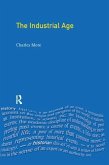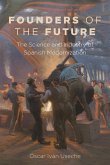Asis book traces the growth of customs and excise, and their integral role in shaping the framework of industrial England; including state power, technical advance, and the evolution of a consumer society. Central to this structure was the development of two economies - one legal and one illicit. If there was a unique English pathway of industrialization, it was less a distinct entrepreneurial and techno-centric culture, than one predominantly defined within an institutional framework spearheaded by the excise and a wall of tariffs. This process reached its peak by the end of the 1770s. The structure then quickly started to crumble under the weight of the fiscal-military state, and Pitt's calculated policy of concentrating industrial policy around cotton, potteries, and iron - at the expense of other taxed industries. The breakthrough of the new political economy was the erosion of the illicit economy; the smugglers' free trade now became the state's most powerful weapon in the war against non-legal trade. If at the beginning of the period covered by this book state administration was predominantly deregulated and industry regulated, by the close the reverse was the case.
Ashworth traces the growth of customs and excise, and their integral role in shaping the framework of industrial England. He examines their influence on elements such as state power, technical advance, and the evolution of a consumer society. If there was a unique pathway of industrialization, it was less a distinct entrepreneurial and techno-centric culture, than one predominantly defined within an institutional framework spearheaded by the excise and a wall of tariffs.
Hinweis: Dieser Artikel kann nur an eine deutsche Lieferadresse ausgeliefert werden.
Ashworth traces the growth of customs and excise, and their integral role in shaping the framework of industrial England. He examines their influence on elements such as state power, technical advance, and the evolution of a consumer society. If there was a unique pathway of industrialization, it was less a distinct entrepreneurial and techno-centric culture, than one predominantly defined within an institutional framework spearheaded by the excise and a wall of tariffs.
Hinweis: Dieser Artikel kann nur an eine deutsche Lieferadresse ausgeliefert werden.








